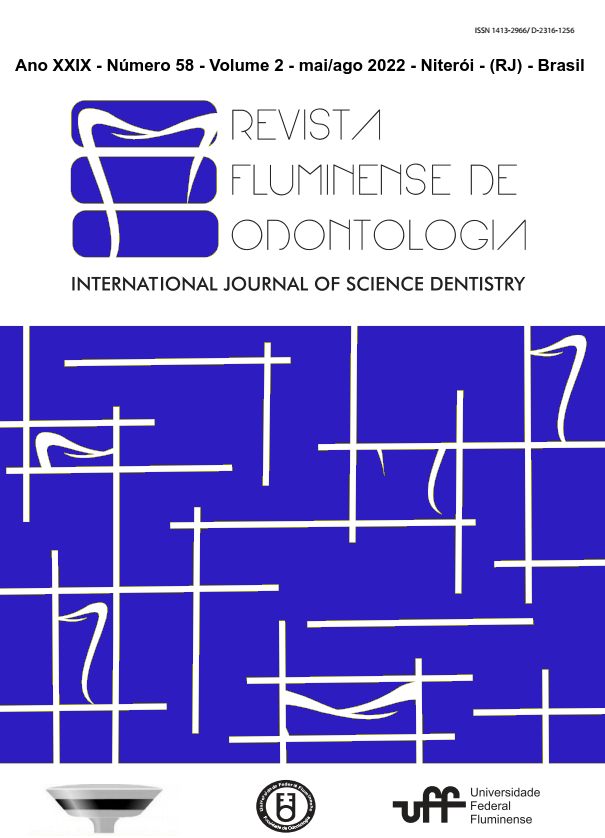CÁRIE NA PRIMEIRA INFÂNCIA: UM PROBLEMA DE SAÚDE PÚBLICA GLOBAL E SUAS CONSEQUÊNCIAS À SAÚDE DA CRIANÇA
DOI:
https://doi.org/10.22409/ijosd.v2i58.50804Resumo
Esse estudo tem como objetivo realizar uma revisão de literatura para apresentar os efeitos da doença cárie em crianças e ressaltar a importância do acompanhamento familiar. Foram selecionados artigos de 2011-2021, publicados nas bases de dados PubMed e SciELO utilizando os descritores: Doença cárie, Prevenção, Odontopediatria, foram incluídos artigos que estavam disponíveis na íntegra em português e inglês. A cárie dental continua a ser um problema de saúde pública, com maior prevalência em crianças e caracterizada por ser uma doença de etiologia multifatorial, biofilme-açúcar dependente não transmissível. A cárie de primeira infância (CPI) é capaz de afetar negativamente a qualidade de vida, por se apresentar como rápido desgaste da estrutura dental e presença de sintomatologia dolorosa. Isso pode resultar em um quadro de perda precoce, má oclusão, prejudicando a mastigação, dentição permanente, sono, rendimento escolar, favorecendo a desnutrição e afetando desenvolvimento. A Declaração de Bangkok recomenda aumento de conscientização sobre essa doença através da educação dos pais, limitação na ingestão de açúcar até os 2 anos de idade e escovação dos dentes de pelo menos 2x/ dia com dentifrício fluoretado. Diante do exposto, se torna essencial o acompanhamento da saúde odontológica da criança desde a erupção do primeiro dente na cavidade bucal, visando reduzir a CPI e contribuir para uma melhor qualidade de vida.
Palavras-chave: Doença cárie, Prevenção. Odontopediatria.


